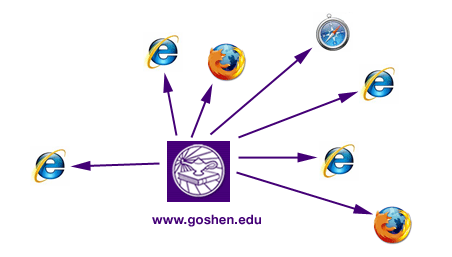
If you tried to open up a Microsoft Word file (a binary file) with a simple text editor, you would see "gobbledy-gook". You need a special program (like "Word") that knows how encode and decode such a binary-coded file.

Web pages are text files that can be read and manipulated with any simple text editor: a very simple piece of software that often comes free with any computer. You may not (initially) understand what the contents mean, but you can at least see the individual characters that someone has typed in, and you could do something like correct a spelling mistake.

Though it may look a bit inscrutable at first, a web page is just a text file containing formatting commands like this:
I'd <b>really</b> like to know who stole my chewing gum!
The things in angled brackets (<b> and </b>) are called tags or markup.
HTML is the set of tags and conventions governing how to mark up text files on the World Wide Web for formatting and display.
Here <b> indicates the beginning of some text we'd like to make bold, and </b> indicates the end of the bold section of text.
This is a common use for tags, to mark the beginning and ending of some section that we'd like to have look a certain way. And so many (but not all) tags come in pairs, and the convention is that a '/' before the tag name indicates a "closing" tag.
A web browser, such as FireFox or Internet Explorer, is a piece of software that knows HTML and renders or displays a text file according to the markup the file contains, and other rules.

Nowadays, a web browser not only knows HTML, but also knows how to display pictures, and do things like launch external programs to view movies or pdf files or many other media.
You can view the raw text file (or source code) of the web page you're viewing in a browser by clicking (FireFox) "View | Page source".

www.goshen.edu is the address of a computer at Goshen College which is running 'Apache' software in order to share files from its hard drive with web browsers that request them from across the internet.
'Webserver' can refer either to: